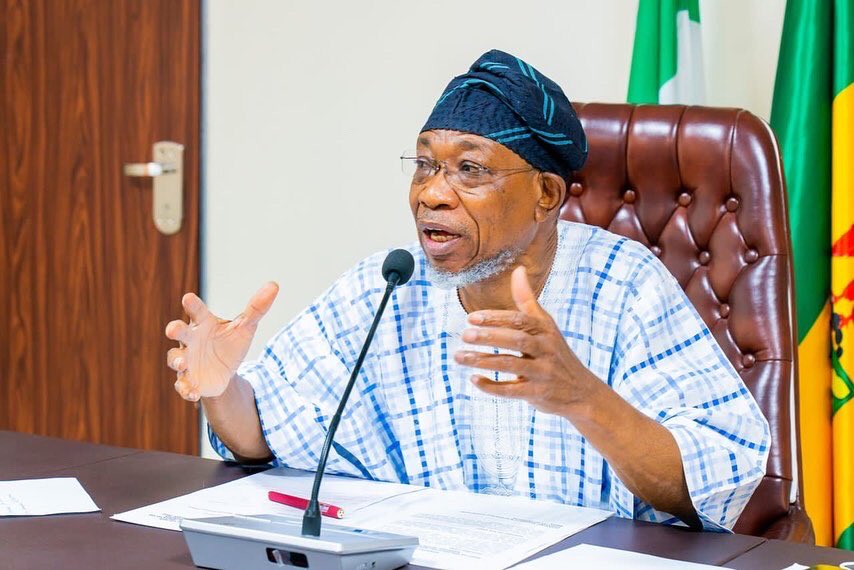Publish Kuje prison report now
The decision by the federal government as announced by the Minister of Interior, Mr Rauf Aregbesola, not to make public the findings of the probe into the July 6, 2022, Kuje Prison break is inimical to the principles of transparency and democracy. Speaking at an event penultimate week in Abuja, Mr Aregbesola, announced that the […]

Rauf Aregbesola
The decision by the federal government as announced by the Minister of Interior, Mr Rauf Aregbesola, not to make public the findings of the probe into the July 6, 2022, Kuje Prison break is inimical to the principles of transparency and democracy.
Speaking at an event penultimate week in Abuja, Mr Aregbesola, announced that the probe has been completed, but that the government had no plans to make the report public because it is a “security document.”
Following the National Security Council meeting, the minister told journalists that a preliminary report had been submitted to the president and promised that there would be consequences for “All those whose actions or inactions led to that unfortunate incident.”
Prison breaks have become rather rampant in Nigeria, leading to the escape of thousands of inmates. Since 2015, there have been at least 14 prison breaks in the country, resulting in the escape of 9, 000 inmates, according to Africa Reports. Half of those inmates are still on the run today. In 2021 alone, 2500 inmates escaped in three jailbreaks across the country. The strategies have been similar, experts say, often using high-calibre explosives to breach the prison walls after overpowering prison guards. All this has happened under Mr Aregbesola’s watch as Minister of Interior.
Tinubu takes campaign to UK; Atiku woos Lagos voters
FG warns Atiku against downplaying Buhari’s achievements
While we recognise that issues of security are sensitive, we do not agree that this nebulous excuse has blanket application in all situations. The Kuje prison attack was very publicly executed, led to the escape of 800 inmates, including key terror leaders, and put the lives of every Nigerian at risk. Neither he nor the federal government has changed its strategy to protect its correctional facilities and in the time since no head has rolled, as the minister is promising now.
This is why the report needs to be made public. These problems have persisted and deepened because of the cloak of mystery that has been used to cover up the failings of public officials.
The Deputy Speaker, House of Representatives, Ahmed Idris Wase, while speaking in the House at the end of July said that the DSS had submitted 44 intelligence reports to relevant authorities about an impending attack on the Kuje prison. To overlook the failings of the relevant authorities and bury them under a cloak of “security document” is inimical to the spirit of the investigation.
Nigerians have genuine reasons to be concerned about these failings and their safety and concealing the findings of the probe is not the best way to address these concerns.
We, therefore, urge the government to publish a redacted report that meets the public interest to know, without jeopardising security.
The federal government, its agents and even candidates aspiring for political office must desist from treating issues and questions about security as if it is something that is run by a cult and Nigerians, whose taxes and commonwealth, fund these services, do not have the right to know. In any democratic system, such as is proclaimed to be practised in Nigeria, the government–security services and all— must be answerable to the public.
Far too often, this blanket cover for security-related probes and lack of accountability in the sector has often meant that failings that cost and endanger civilians’ lives are not acknowledged and the necessary actions are not taken or seen to be taken to forestall future occurrences.
If those whose action or inaction led to the incident will be punished, as the minister promised, why then is it necessary to conceal the findings in the report? Will they also be punished secretly? People who do wrong or abdicate their duties must be seen to be published to serve as deterrence in the future.
Other democracies, like the US, have congressional hearings to “Obtain information and opinions on proposed legislation, conduct an investigation, or evaluate/oversee the activities of a government department or the implementation of federal law,” according to the US Government website. These hearings are public and a schedule on the Armed Forces is made available on the government website.
Failure to address the failings and for Nigerians to see them addressed leaves only a sense of the failings of the security system and not the reckoning needed to bring reassurance and a sense of security.
It should no longer be acceptable for monumental failures like these that have cost the lives of Nigerians, threatened national security and created instability to be papered over by a false doctrine of shadiness meant only to protect those who have failed the country.
It is time we stopped using a blanket cover of “national security” to fail to hold public officers accountable for their lapses. In tackling prison breaks in Nigeria, the first place to start is by making this report public now.
